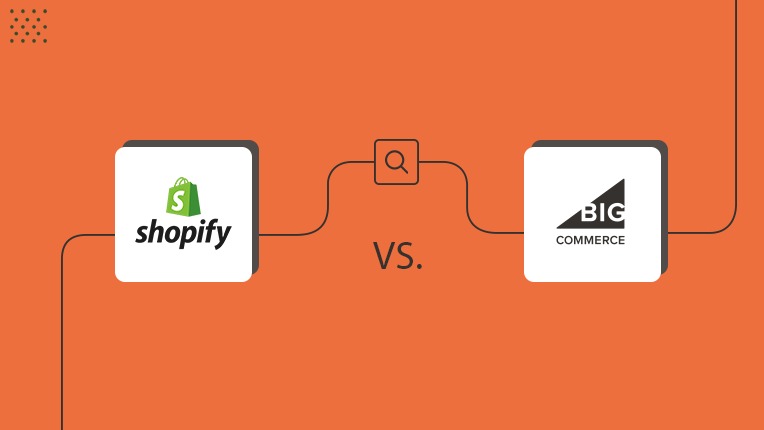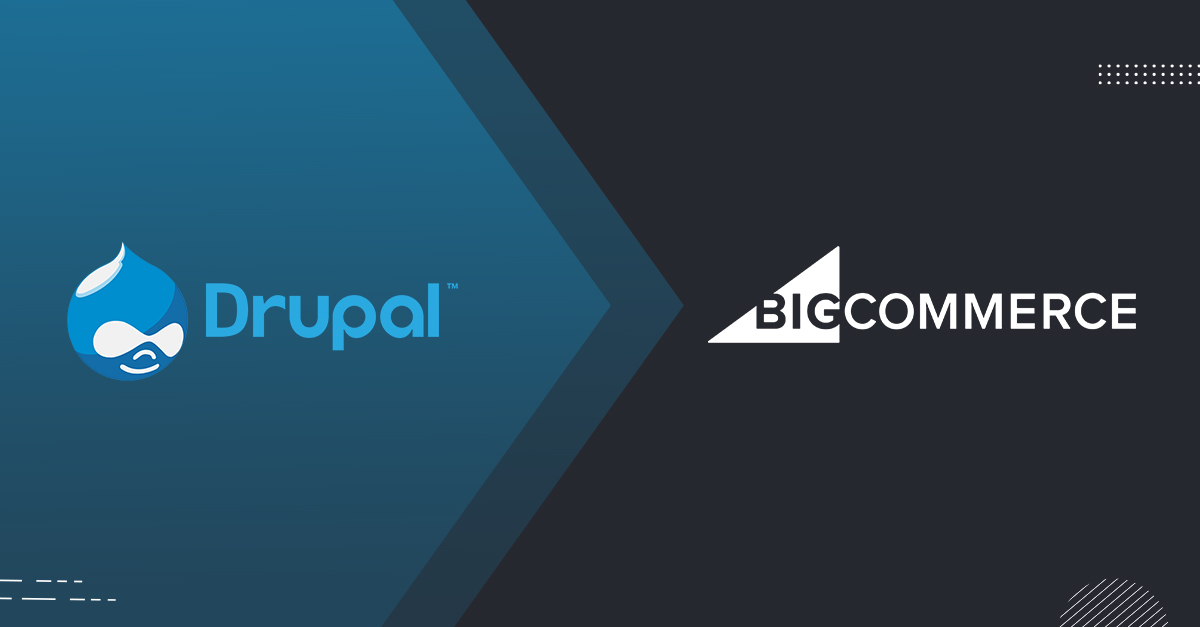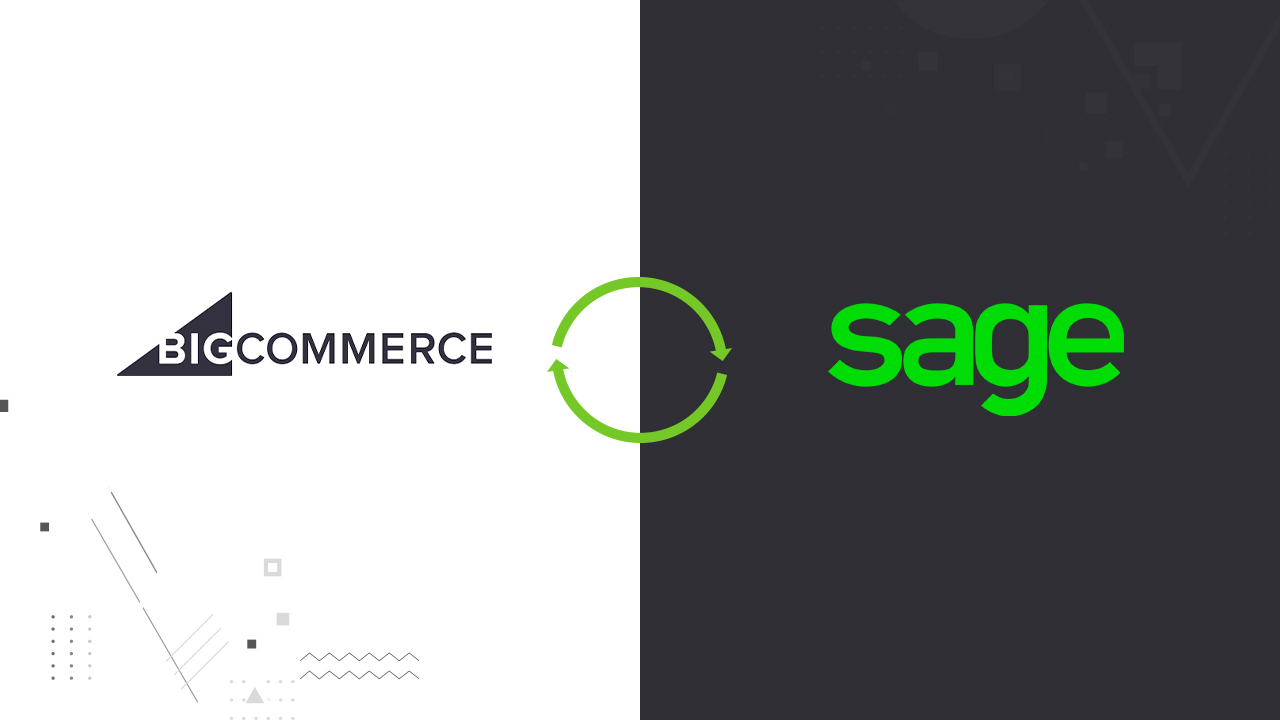Shopify vs BigCommerce

In today’s technologically driven commerce climate, the choice of an e-commerce platform is pivotal. It’s not just about going digital, but about how effectively and efficiently a business can do so. Shopify and BigCommerce emerge as leading contenders, each handling a distinct arsenal of features, and together, powering millions of online stores globally.
Nevertheless, despite being quite similar in their general functionality and pricing structures, there are slight but significant dissimilarities between BigCommerce and Shopify. With over a million businesses rooted in Shopify’s versatile ecosystem and BigCommerce’s robust, enterprise-focused solutions, the decision is far from easy. The question remains – which giant offers the tailored solution fit for your business archetype?
According to a survey conducted by Forrester Consulting, 54% of B2B companies and 56% of B2C companies prioritized improving the customer experience. Shopify excels in this arena, with a plethora of themes and seamless shopping experiences. Meanwhile, BigCommerce, is a masterclass in customization and flexibility, ensuring that as your business grows, so does the functionality of your online space.
In this comprehensive comparison, we aim to cut up the intricate layers of both platforms, revealing the pathways they pave for various business models. As we delve deeper, we’ll explore how each platform aligns with different business objectives, scales with growth, and ultimately, contributes to the pivotal customer experience.
Shopify
Shopify is a commerce platform for your online store, in-store sales, offering financial services, educational resources, and more. It is the solution trusted by millions of merchants for their business today with exceptional multilingual capabilities. Shopify’s more fully-featured mobile app, which you can use to run your store almost entirely from your smartphone, and Shopify POS, which directly integrates with your Shopify store to consolidate your offline and online business.
Strengths
1. Easier to use than Bigcommerce
2. Tons of industry-specific themes
3. Versatile ecosystem
4. Free 3 days trial
5. Global community of users
Limitations
1. Transaction fee of 2%
2. Over-reliant on third-party apps
3. Limited staff accounts
Why Merchants Choose Shopify over BigCommerce?
1. Trusted by Merchants Worldwide
Shopify stands out as one of the most popular commerce platforms for a compelling reason. Whether you are establishing a business without prior experience or expanding an established multi-million dollar brand, Shopify owns all the essential tools you require.
2. Exclusive Applications
Explore the Shopify App Store, where you’ll find a range of free Shopify apps, some exclusive to the platform. Examples include Oberlo, a product sourcing tool, and ShopCodes, for generating QR codes tailored to your products.
3. Plans at Discounted Prices
Choose from discounted pricing plans on Shopify. Opt for a monthly subscription or commit to a yearly plan and avail a 25% discount.
4. Built-in SEO Features
On Shopify, editing header tags, alt tags, meta descriptions, and other elements is pretty simple. You can easily generate content to increase website traffic with Shopify’s blogging content management system.
5. No Coding Required
With Shopify, you can establish and launch your online store without having to write a single line of code. However, if you desire more customization, you have the flexibility to edit HTML and CSS, giving you greater control over design and features, whether you handle it personally or hire a developer.
If you’re considering to take expert assistance, our guide on How to Hire a Shopify Development Agency offers comprehensive steps to help you select the ideal Shopify development professionals for your project.
6. Safe for Merchants and Customers
Shopify not only has an SSL certificate that today’s shoppers seek as a security sign but also incorporates a built-in fraud analysis tool that serves as a safeguard, aiding store owners from fraudulent orders and chargebacks effectively.
7. Trade Globally
Shopify is growing its options for international trade, entering new regions, and offering a range of Shopify apps that let users sell locally on platforms like WeChat and WhatsApp. These initiatives are part of Shopify’s worldwide expansion strategy.
8. Supportive Community
The Shopify ecosystem is made up of partners, third-party groups, forums, resources, experts, tools, and more that are all aimed toward assisting you in starting and growing your new company on Shopify.
9. Profitable Marketing Tools
Shopify offers an array of marketing tools designed to boost revenue. From a versatile blogging CMS and various sales channels to automatic discounts, Shopify Email, and gift cards, merchants can create exceptional shopping experiences for their buyers.
Bigcommerce
BigCommerce is also a huge name in eCommerce for a reason —it uses a straightforward content management system with a modern dashboard making it easy to navigate the online store’s backend. BigCommerce abridges the process of swiftly launching your online store by providing a variety of built-in features that not only save you time but also assist you in effectively reducing costs.
Strengths
1. Highly scalable e-commerce features
2. Zero transaction fees
3. Strong SEO features facilitate website rank online
4. High page loading speed
5. Free 15 days trial
To fully leverage these strengths, explore BigCommerce development services that offer customized, efficient, and scalable solutions tailored to diverse business needs.
Limitations
1. Not as beginner-friendly as Shopify
2. Automatically upgrade to a more costly plan with increased revenue
3. Limited cost-free design templates
Why Merchants Choose BigCommerce over Shopify?
1. Ground-Breaking Functionality
BigCommerce doesn’t penalize you with extra costs in any plan and offers more of the native tools you need to establish a store functionality and customer experience the way you want.
2. Out-of-the-Box Performance
BigCommerce stands out for its scalability, engineered to grow with your business, accommodating increased volumes and complexities without compromising performance.
3. Exceptional Growth
Shopify makes it hard to build your business with strict limits on the number of API calls per second, just three alternatives per product, and a cap of 100 SKUs per product. BigCommerce has 250 possibilities and up to 600 SKUs per product, so it can expand with your business. You will never outgrow us, no matter how large you wish to get.
4. Strong SEO Capabilities
Shopify doesn’t have CDN, fully customizable, optimized URLs, or the ability to alter robot.txt. With all of these features available right out of the box, along with microdata, 301 redirects, URL rewrites, and a content delivery network (CDN), BigCommerce offers a clear performance edge.
5. Higher Usability, Lower Total Cost of Ownership (TCO)
BigCommerce and Shopify’s plans can appear to be quite comparable at first glance. But when you look at the price of add-ons and third-party apps, you can see why store owners go with BigCommerce. Its native apps, automated features, platform updates, and flat-rate pricing all contribute to lower expenses and quicker re-platforming, which can save businesses between $20,000 and $30,000 annually.
6. Headless Support
BigCommerce stands out in the realm of headless commerce support, offering greater flexibility for creating unique customer experiences. Headless support in BigCommerce allows the use of its backend services while customizing the frontend with other technologies for greater flexibility in design and user experience.
Check out our article on: BigCommerce Headless Capabilities: Advantages and Drawbacks
Conclusion
Choosing between BigCommerce vs Shopify can be tough because both are excellent.
Shopify has earned its renowned reputation in the eCommerce realm for good reason. The platform is remarkably user-friendly enabling users to build an impressive website without having to manipulate a single line of code. It emerges as a preferred choice for those lacking technical expertise, or for small business owners seeking efficiency and convenience.
On the other hand, BigCommerce warrants equal consideration. It’s a preferred option for those looking to avoid transaction fees or monthly app costs, although it might require enlisting a developer occasionally. BigCommerce stands out for large corporations making the transition online, offering a personalized shopping experience.
In the end, the choice between Shopify vs BigCommerce relies on your business size, the experience you desire to give customers, and what you value most in a service provider. This article for sure helps you to know exactly which one to sign up for.



